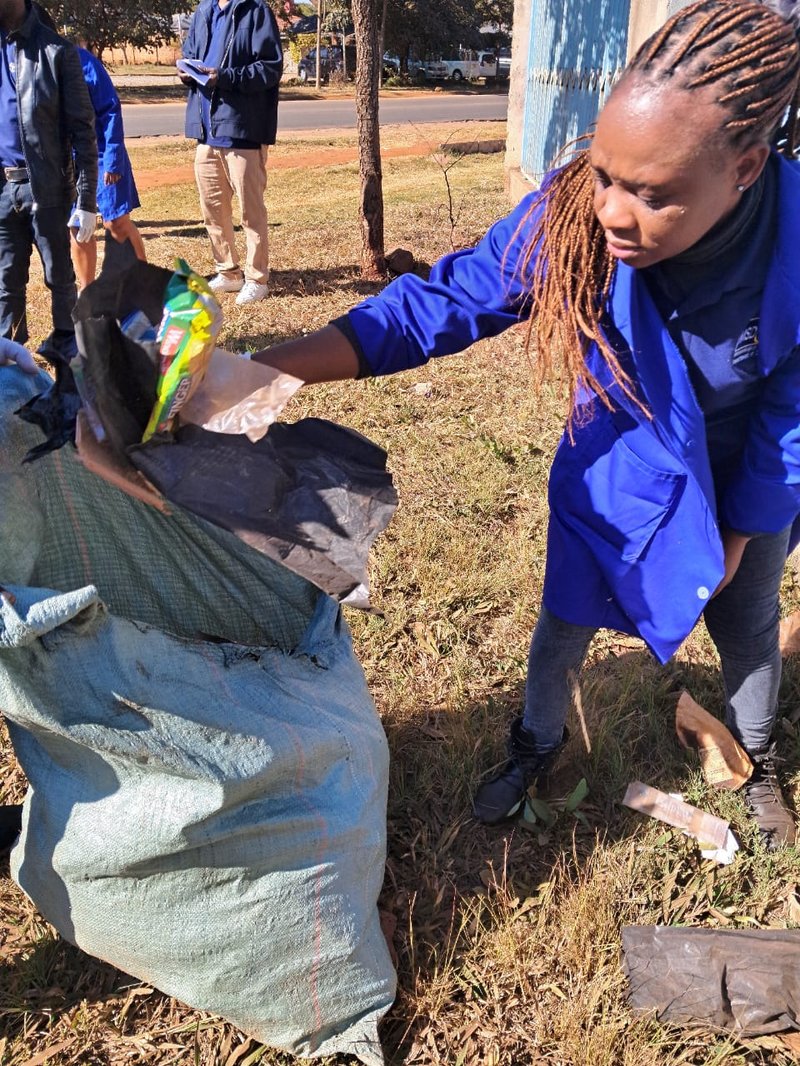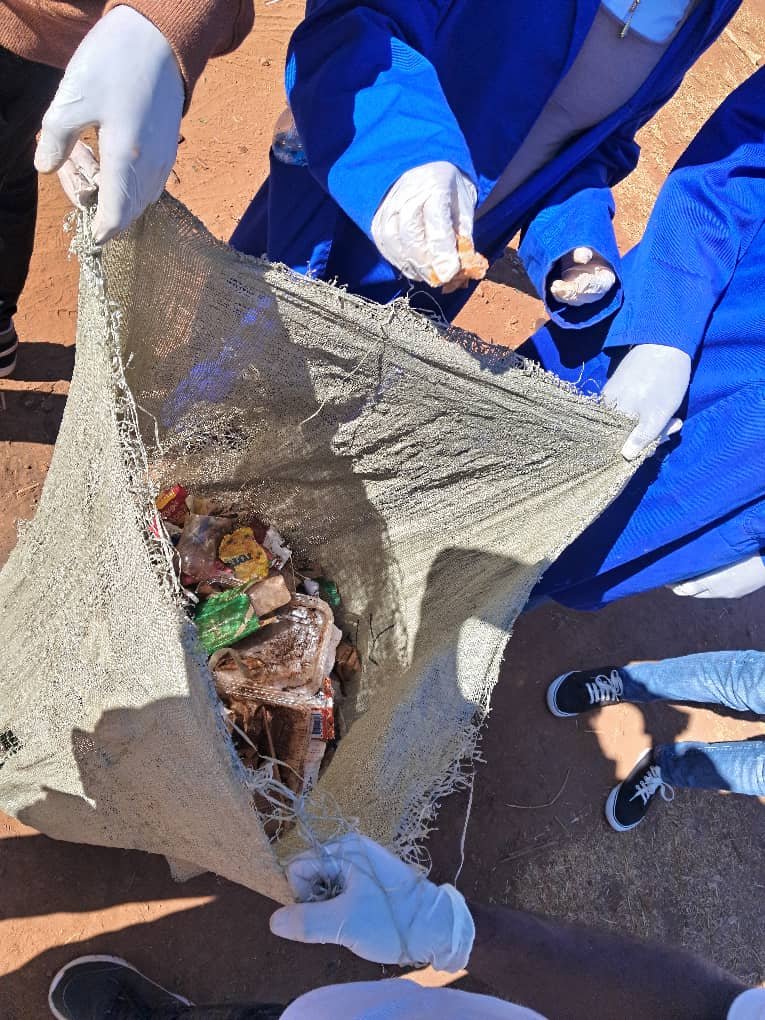MSD Marks Plastic Free July with Clean-Up Campaign at their HQ.

Belvedere 04 July 2025.
In honor of Plastic Free July, the Meteorological Services Department of Zimbabwe (MSD) today demonstrated its climate leadership by actively participating in the National Clean-Up Campaign, a nationwide initiative held every first Friday of the month. The MSD turned out in full force, cleaning public spaces and educating communities on the vital link between a clean environment, plastic waste, and climate change.
As the national authority on weather and climate, MSD understands better than most how pollution, especially from single-use plastics, contributes to the climate crisis. Plastics, derived from fossil fuels, release greenhouse gases throughout their lifecycle, accelerating global warming and worsening extreme weather events such as floods, heatwaves, and droughts. These impacts are already being observed across Zimbabwe, and MSD’s data confirms that human-driven pollution plays a growing role.

“Plastic waste doesn’t just clog our drains and pollute our soils, it disrupts weather patterns and undermines climate resilience,” said a senior meteorologist. “As MSD, we are committed to promoting not just forecasts, but foresight. A clean environment is a foundation for accurate weather monitoring and long-term climate stability.”
The department emphasized that removing plastic waste from the environment also improves the quality of hydrological and atmospheric data collected through ground stations. Clear surroundings around meteorological equipment ensure accurate readings, which are critical for early warning systems and disaster preparedness, especially in this era of increasing climate unpredictability.

By aligning the clean-up campaign with Plastic Free July, the MSD not only supports a greener Zimbabwe but also sends a strong message that climate action begins with environmental responsibility. As Zimbabwe navigates the realities of climate change, the department calls on all citizens and institutions to join in reducing plastic use, separating waste, and protecting the ecosystems that support weather and climate balance.

